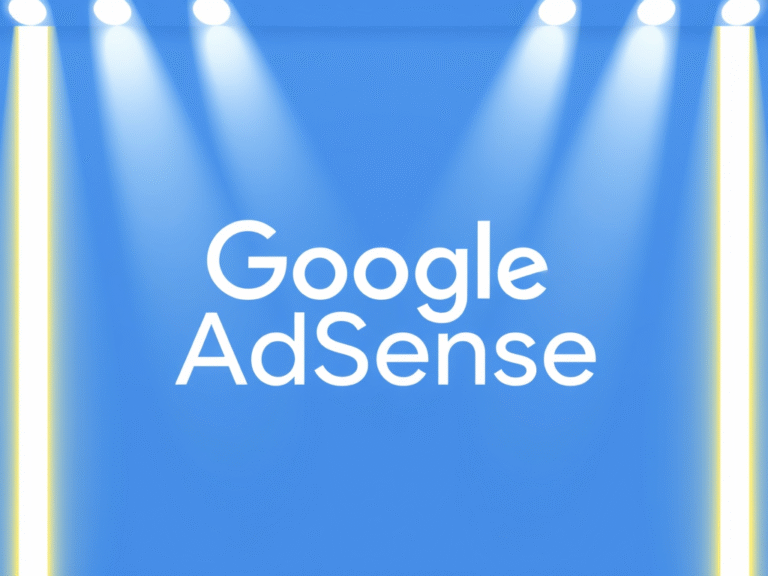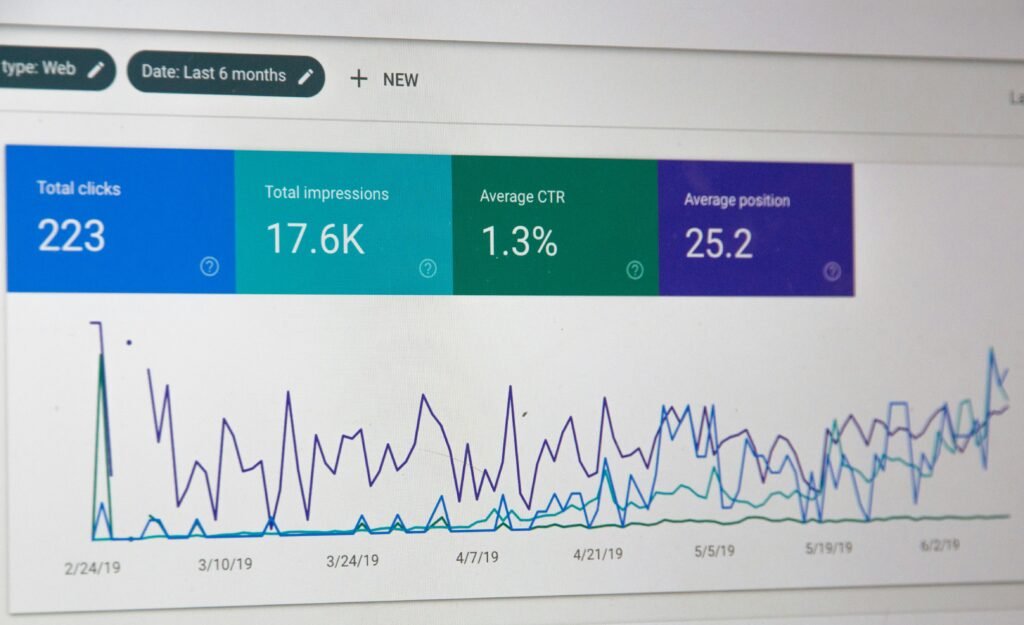
Introduction to Facebook Monetization
The realm of social media has undergone substantial transformations, with Facebook emerging as a central player in monetization since its inception. By 2025, the strategies to monetize Facebook will likely evolve further, catering to the increasing demand for effective revenue generation avenues. Understanding the concept of Facebook monetization is crucial for both businesses and content creators seeking to capitalize on their online presence. The process involves leveraging Facebook’s extensive user base to create and sustain a viable income stream.
In recent years, the significance of social media monetization has propelled businesses to explore new ways of engaging their audience and earning revenue. As Facebook continues to innovate and expand its features, the opportunities for generating income will similarly grow. For example, paid subscriptions, sponsored content, and Facebook Live events have marked the beginning of a new era in digital monetization. Creators and companies will need to stay attuned to these emerging trends to remain competitive.
The competitive landscape on Facebook requires a strategic approach for effective monetization. To succeed in monetizing Facebook, it is essential for businesses and creators to not only produce high-quality content but also understand audience behavior and preferences. Tailoring content to meet these demands can significantly enhance the likelihood of successful revenue generation. Furthermore, utilizing data analytics to track performance can provide valuable insights into what strategies yield the best results.
In conclusion, as Facebook’s platform and features continue to evolve, understanding the mechanisms of monetization will be vital for stakeholders looking to exploit this lucrative avenue. With systematic approaches, businesses and content creators can position themselves effectively to harness the full potential of Facebook monetization in 2025 and beyond.
Understanding Facebook’s Algorithm Changes
As Facebook continues to evolve, anticipated changes to its algorithm are likely to have a profound impact on user engagement and advertising strategies by 2025. The platform’s algorithm is fundamentally designed to enhance user experience by determining what content is shown to users, affecting everything from organic reach to paid advertisements. As we look ahead, several trends and anticipated adjustments suggest that businesses and content creators must adapt to maintain visibility and engagement on the platform.
One of the most significant shifts may involve increased prioritization of user-generated content over traditional branded posts. This adjustment would encourage users to participate in discussions and share content organically, thus impacting how businesses produce and promote content. By 2025, brands might need to pivot towards fostering community interactions rather than simply broadcasting their messages. This means crafting authentic and relatable content that resonates with audiences and encourages sharing.
Furthermore, there is an increasing trend toward personalization driven by advanced machine learning algorithms. Facebook’s ability to tailor content according to individual preferences is expected to improve, making it crucial for advertisers to segment their audiences effectively. By employing data analytics, businesses can create targeted campaigns that align with user interests, leading to higher engagement rates.
Moreover, recent developments suggest that video content might see a resurgence on the platform, as user engagement with rich media formats tends to be substantially higher. Consequently, strategizing for 2025 may involve increasing investments in video marketing, including live streaming and engaging video ads that foster interaction.
In conclusion, understanding these potential algorithm changes can empower content creators and businesses to refine their monetization strategies effectively. By adapting to the anticipated shifts in Facebook’s algorithm, they can enhance user engagement and maximize their advertising efforts moving forward.
Exploring Facebook’s Ad Revenue Potential
Facebook has continuously evolved its advertising model, becoming a leading platform for businesses to reach potential customers effectively. The focus on ad revenue within the Facebook ecosystem is particularly relevant as we look toward 2025, where new ad formats and enhanced targeting features are expected to emerge. These developments provide businesses an opportunity to maximize their earnings through strategic use of Facebook ads.
Currently, Facebook offers a diverse range of ad formats, including image ads, video ads, carousel ads, and stories, each designed to engage users in unique ways. As user behavior shifts, Facebook is anticipated to introduce even more interactive ad formats that cater to mobile users and incorporate augmented reality features. The integration of these innovative formats will allow businesses to connect with their target audience in a more immersive and engaging manner.
Targeting features on Facebook have always been a significant advantage for businesses, enabling them to reach highly specific audiences based on demographics, interests, and online behaviors. As advancements in artificial intelligence and data analytics continue, Facebook is likely to refine its targeting capabilities further. Enhanced audience segmentation and lookalike audiences will enable companies to optimize their ad spend, ensuring that every dollar invested yields maximum returns.
Additionally, as competition for advertising space intensifies, businesses must become adept at utilizing Facebook’s analytics tools to measure performance accurately and adjust strategies in real time. Understanding which ads drive the highest engagement will be crucial in a landscape where consumer preferences are rapidly changing. By leveraging these ad options, companies can position themselves to thrive in Facebook’s evolving marketplace.
As we look ahead to 2025, the potential for Facebook’s ad revenue growth remains strong. With the continuous introduction of innovative ad formats and refined targeting capabilities, businesses have a robust framework to harness and benefit from this potential effectively.
The Rise of Live Streaming and Video Content
In recent years, live streaming and video content have emerged as crucial components of social media marketing on platforms like Facebook. The growing preference for video over written content is evident, as statistics indicate that 80% of all internet traffic will be attributed to video by 2025. Facebook has recognized this shift and actively promotes video content through its algorithms, ensuring that engaging and relevant videos reach larger audiences. This strategic emphasis on video is a reflection of user engagement metrics, with studies revealing that viewers retain 95% of a message when it is delivered through video compared to only 10% when read in text form.
For content creators, the rising importance of video content on Facebook presents a notable opportunity for monetization. Live streaming, in particular, has gained traction due to its immediacy and ability to foster real-time interactions between creators and their audiences. According to recent data from Facebook, live videos generate six times more interactions compared to regular video posts. This heightened engagement level not only enhances viewer loyalty but also opens avenues for monetization through ads, sponsorships, and fan support features such as Stars.
To effectively capitalize on these features, creators must adopt a strategic approach. First, prioritizing authenticity in live streams—such as sharing personal stories or incorporating viewer questions—can build stronger connections with audiences. Additionally, leveraging Facebook’s various monetization tools, including in-stream ads, brand collaborations, and subscription services, can enhance financial performance. Finally, consistent content creation and promoting upcoming live sessions can significantly boost audience anticipation and participation, leading to higher overall monetization potential.
Utilizing Facebook Groups for Community Building
In the rapidly evolving landscape of social media, Facebook Groups have emerged as powerful tools for community building and monetization. By creating and nurturing a dedicated group, businesses and individuals can foster a sense of belonging among members while simultaneously exploring various revenue-generating avenues. Strategically leveraging these groups can lead to significant growth in engagement and income.
To transform a Facebook Group into a revenue-generating platform, it is crucial to begin with a clear purpose that resonates with the target audience. This can range from a shared interest in specific hobbies to professional networks aimed at supporting career development. By defining this purpose, group creators can attract members who are genuinely invested and willing to participate. Content shared within the group should be valuable and relevant, encouraging engagement through discussions, Q&A sessions, and interactive posts.
Once a community is established, monetization can take various forms. One effective method is implementing a membership model, where members pay a fee for exclusive access to premium content, resources, or personalized guidance. This not only generates revenue but also creates a sense of value among paying members. Additionally, incorporating affiliate marketing within the group can yield passive income; sharing valuable products and services relevant to the group’s interests allows creators to earn commissions on sales made through their referrals.
Engagement tactics are also essential in driving revenue through Facebook Groups. Host regular events, such as webinars or workshops, to maintain interest and provide deeper value while promoting products or services seamlessly. Encouraging user-generated content fosters community ownership and attracts new members, which can ultimately lead to increased revenue streams. By prioritizing engagement and leveraging monetization strategies thoughtfully, Facebook Groups can evolve into thriving revenue-generating platforms.
Content Monetization: Subscriptions and Fan Support
As we look ahead to 2025, content monetization on Facebook is becoming increasingly sophisticated, particularly through subscription and fan support models. To fully tap into these opportunities, content creators must adopt a multifaceted approach to establish sustainable revenue streams. One prominent option is offering subscription services that enable creators to provide exclusive content to their supporters, thus establishing a recurring revenue model. This can be achieved through Facebook’s dedicated subscription features, allowing followers to subscribe on a monthly or yearly basis in exchange for premium content, behind-the-scenes access, or personalized interactions.
Utilizing tiered subscription models can cater to various audience segments. For example, creators might offer different subscription levels that unlock varying degrees of content and engagement. Basic tiers could provide access to standard content, while higher tiers might include exclusive live sessions, merchandise discounts, or direct messaging opportunities. This structure not only incentivizes subscribers to increase their financial commitment but also enhances the overall user experience, fostering community and loyalty among supporters.
In addition to direct subscriptions, fan support initiatives, such as Facebook Stars, allow followers to financially support creators by purchasing and sending virtual gifts during live broadcasts or content interactions. This can create an avenue for real-time engagement and monetization. Moreover, engaging and communicating regularly with fans creates stronger connections and can result in a much more dedicated supporter base. Effective strategies for building these relationships include acknowledging fan contributions publicly, offering behind-the-scenes glimpses, and hosting interactive Q&A sessions.
As content creators navigate these evolving monetization strategies on Facebook, they should remain flexible and responsive to changes in audience preferences and platform features. By ensuring that their offerings align with their community’s interests and needs, creators can cultivate a robust subscriber base and solidify their revenue-generating capabilities well into 2025 and beyond.
E-commerce Integration and Shopping Features
As we look towards 2025, Facebook is anticipated to significantly enhance its e-commerce capabilities, providing brands with a well-defined platform to streamline their selling processes. With the integration of various shopping features, businesses can expect a more robust framework for reaching their target audiences and facilitating seamless transactions. This evolution is rooted in Facebook’s commitment to becoming a central hub for online commerce, capitalizing on its vast user base and sophisticated targeting algorithms.
One of the notable advancements is the anticipated introduction of improved shoppable posts. These posts will allow brands to tag products directly, enabling users to click through for immediate purchasing options. With the growing trend towards impulsive shopping driven by social media, brands will be able to create engaging and visually appealing content that captures users’ attention while providing a direct path to purchase. Furthermore, the integration of augmented reality (AR) features is expected to enhance the shopping experience, offering users an interactive way to visualize products before buying.
In addition, Facebook Shops is expected to undergo substantial enhancements, making it easier for brands to set up virtual storefronts that are mobile-friendly and highly customizable. This will allow businesses of varying sizes to showcase their products effectively and manage transactions without the need for external websites. By 2025, retailers can leverage these tools for personalized marketing strategies that enhance customer engagement and drive sales.
Moreover, brands should also focus on utilizing Facebook’s advertising capabilities to promote their products effectively within this evolving ecosystem. The synchronization between ads and shopping features can help target specific demographics, increasing the likelihood of conversion. By employing a comprehensive approach that integrates their e-commerce strategies with Facebook’s evolving shopping features, brands can optimize their monetization prospects in this dynamic landscape.
Case Studies: Successful Facebook Monetization Strategies
As Facebook continues to evolve, various businesses and content creators have adopted innovative strategies to effectively monetize their presence on the platform. One notable case study is the online fashion retailer Fashion Nova, which successfully leveraged Facebook’s advertising tools to drive traffic to its website. Utilizing video ads showcasing influencers wearing their products, the brand engaged its audience while simultaneously fostering a sense of community. Key to their success was the ability to create captivating content that resonated with their target demographic, turning views into sales.
Another intriguing example comes from the gaming sector, particularly with the streaming platform Facebook Gaming. Prominent streamers such as CouRageJD have utilized Facebook’s monetization features, including fan subscriptions and ad revenue to achieve remarkable success. This case study highlights the importance of community engagement and regular interaction with followers, as CouRageJD consistently connects with his audience through live streams and interactive content, building loyalty while generating revenue.
Meanwhile, small businesses like a local coffee shop in San Francisco have also discovered effective Facebook monetization tactics. By establishing a Facebook group for loyal customers, they fostered a vibrant community that encouraged repeat business while introducing exclusive promotions only available to group members. The key challenge this business faced was maintaining consistent engagement; however, they overcame this hurdle through regular updates, engaging content, and special events that motivated customers to participate actively.
These case studies collectively demonstrate the myriad approaches to monetizing Facebook successfully, revealing that both large corporations and small businesses can thrive. By leveraging engaging content, community building, and innovative advertising strategies, users can harness the power of the platform to achieve financial success. The lessons learned from these examples emphasize the importance of creativity, adaptability, and audience understanding in the ever-evolving landscape of Facebook monetization.
Future Trends in Facebook Monetization
As we look toward 2025 and beyond, Facebook monetization strategies are anticipated to undergo significant evolution driven by technological advancements and shifting user behaviors. One prominent trend will be the increased use of artificial intelligence (AI) and machine learning algorithms to enhance ad targeting. These technologies will enable advertisers to deliver highly personalized ad experiences, improving conversion rates and user engagement. Brands will be able to leverage data analysis to identify nuanced customer preferences, leading to more efficient ad spending and better returns on investment.
Additionally, augmented reality (AR) and virtual reality (VR) are poised to reshape the landscape of Facebook monetization. As AR and VR technologies become more accessible, businesses will likely incorporate immersive experiences into their advertising strategies. Users may interact with products in a virtual space before making purchasing decisions, redefining the consumer journey and enhancing customer satisfaction. This capability could open new avenues for monetization, as businesses capitalize on innovative advertising formats that resonate with audiences.
Moreover, the rise of influencer partnerships will continue to play a crucial role in Facebook monetization. As users seek authentic and relatable content, brands will find value in collaborating with micro and macro influencers who align with their target demographics. This trend emphasizes the importance of community engagement and trust-building in marketing efforts. Influencer-driven campaigns can foster organic brand loyalty and encourage user-generated content, further enhancing brand visibility and sales potential.
Finally, the emergence of blockchain technology may bring about noteworthy changes in advertising practices. By providing transparent and secure tracking systems, blockchain could restore trust between advertisers and consumers, addressing concerns such as ad fraud and data privacy. As these trends unfold, successful Facebook monetization strategies will require businesses to remain adaptive and innovative, ensuring they stay ahead in a rapidly evolving digital landscape.





1 thought on “Monetizing Facebook in 2025: Strategies for Success”